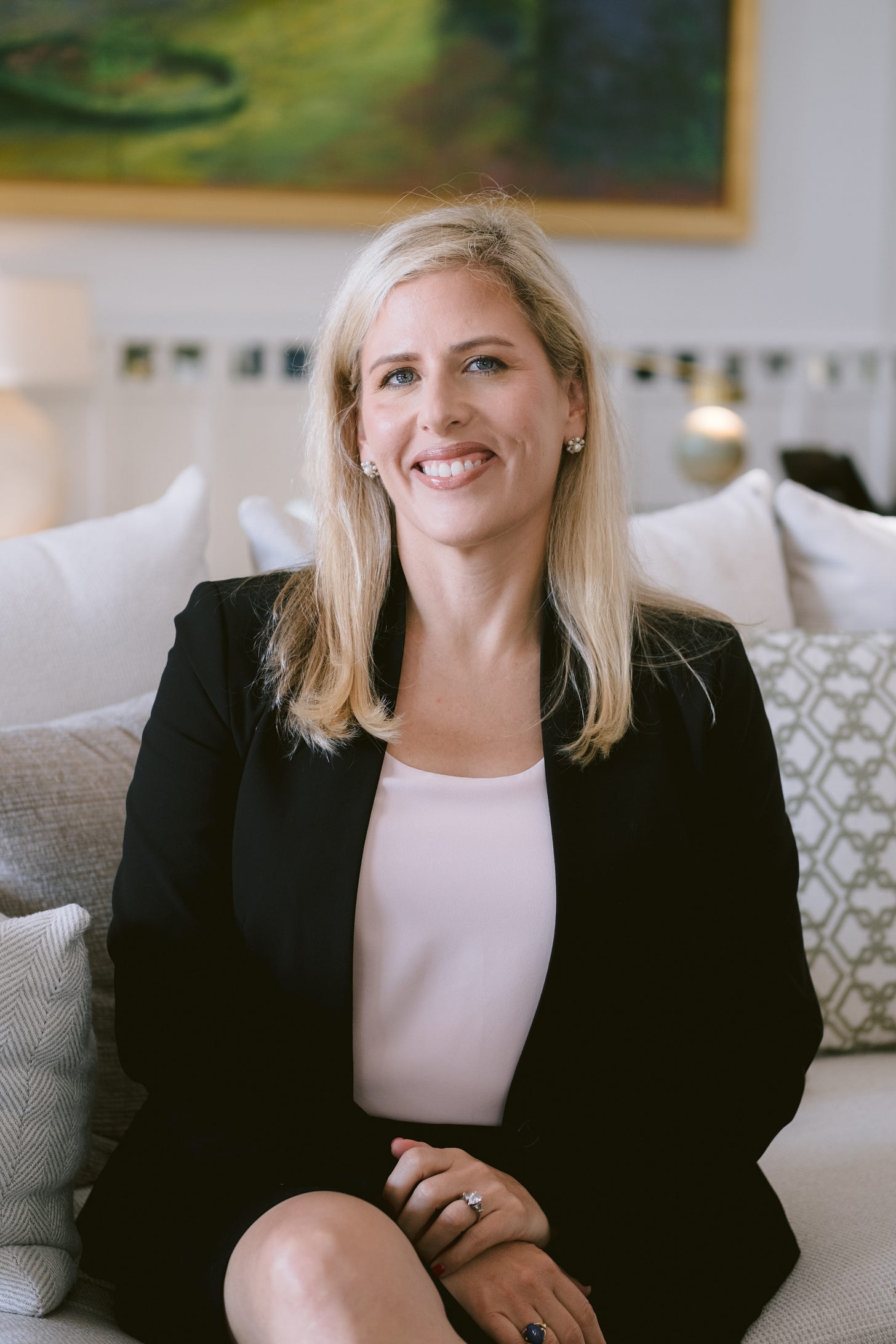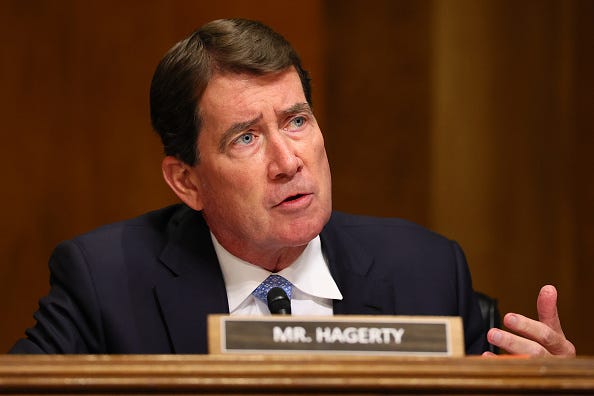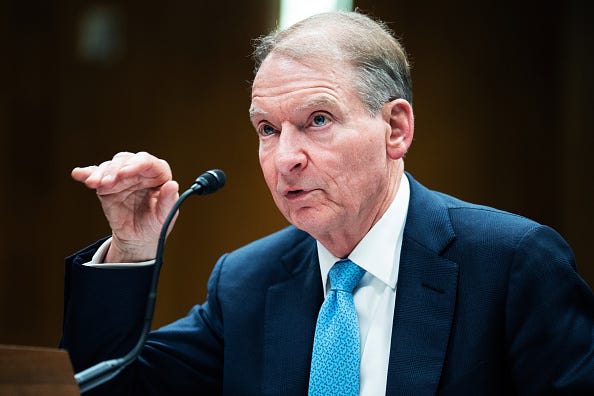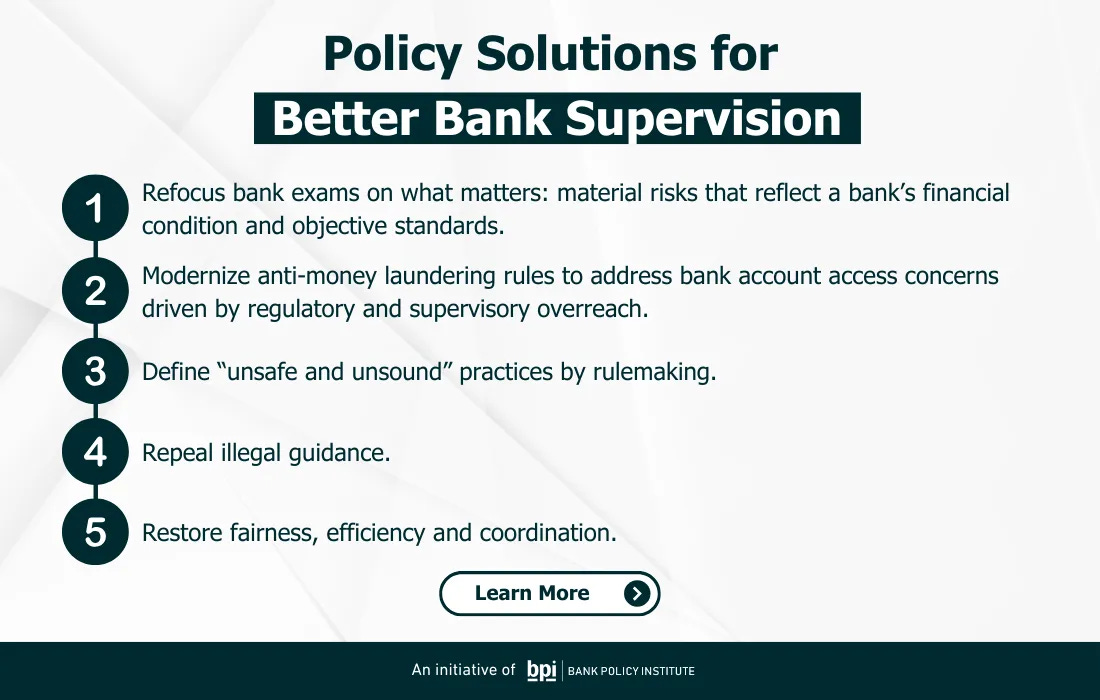Talking Alternative Assets; Banking Industry Splits on Deposit Insurance; SEC Gets an Earful on Foreign Listings
Capitol Account: Free Weekly Edition
Sponsored by the Bank Policy Institute
One-party control of Washington can pave the way for drastic policy change. But often, the nitty-gritty of issues makes things more complicated than meets the eye — especially when it comes to financial rules. This week, we covered a couple of intra-industry fights that are arising as the Trump administration’s deregulatory efforts roll forward.
In the banking realm, lenders are divided over deposit insurance reforms, with mid-sized firms driving revisions that their larger and smaller competitors are loath to support. And at the SEC, a nascent plan on increasing oversight for foreign companies that list in the U.S. is drawing broad skepticism from market participants. Meanwhile, an agency advisory committee that many see as left-leaning took a surprising stance on alternative investments.
It was also a busy week on the speaking circuit. We attended Georgetown’s annual financial markets conference, where the Fed vice chair for supervision gave an update on her extensive agenda, the SEC chairman talked about “making IPOs great again” and the CEO of Goldman Sachs carefully weighed in on the president’s call to cut back quarterly earnings reports. For our Friday interview, we sat down with a trade group president at the center of the push to give retail investors more access to private markets.
Thanks for reading our digest of articles published this week. Click the button below to become a paid subscriber and get our full coverage.
Friday Q and A: In Washington, there seems to be a trade association for everything. That’s especially true in financial services, where multiple lobbying groups represent each segment of the industry. It can all seem a bit unnecessary, but every organization has its raison d’etre – and sometimes having a singular focus pays off.
This week we sat down with Anya Coverman, president of the Institute for Portfolio Alternatives. It’s an organization that hasn’t had the highest profile in Washington, but is now in the midst of one of the bigger policy debates in town: the push to give more retail investors exposure to the private markets. IPA has been advocating on the issue for decades, but rarely have alternative assets been more at the center of regulators’ attention.
Coverman joined IPA in 2017, and has been senior vice president of government affairs and general counsel; she was promoted to the top job in 2022. Read on to learn her plans for meeting the moment, as well as her thoughts on everything from President Donald Trump’s executive order on including alternatives in 401(k)s to how the SEC should update its accredited investor standard. What follows is our (lightly edited and condensed) discussion.
Capitol Account: Tell us about IPA.
Anya Coverman: The trade association started in 1985, so we’ve been around for about 40 years now. We’ve always been hyper-focused on the whole ecosystem that makes up alternatives and private market investments.
CA: When you say alternatives, what does that mean?
AC: We think of it as asset classes, including real estate, private credit, private equity, infrastructure, secondaries, venture capital…Many of our members have products designed for institutional [investors], but we’ve always been focused as an organization on the individual investor channel – how are we giving the individual access to the same non-correlated, high-quality products that the institutional investor has had for decades.
CA: How big is IPA’s membership?
AC: About 600 firms…They range from your traditional alternative manager, whether it’s a Blackstone, KKR, Ares, Apollo or a boutique…We also have a lot of asset managers that are involved in the private wealth space [like] BlackRock, Franklin Templeton, PGIM, Cohen & Steers…And distributors, which include all the major banks…independent broker-dealers, as well as [Registered Investment Advisers].
CA: Your members must be thrilled with the push by the Trump administration to open private markets to retail investors.
AC: That’s our top issue. Everything we do stems from that proposition, how do we give individual investors access? And that [means] everyone from your mom-and-pop retail investor all the way to a more high-net-worth individual. This has been our mission from Day One.
CA: The White House has been on a mission as well, on this issue. What do you think of the executive order directing the Labor Department to expand the availability of alternative assets in 401(k) plans?
AC: It’s been a long time coming. Obviously his executive order asks for more consideration, more research, more discussions. But we’re happy to see that.
CA: The DOL said this week that it plans to propose a new rule in response to the EO. Have you been thinking about what your comment letter will say?
AC: Our members have a lot of different views on what should happen next. There’s broad alignment around a better fiduciary framework. There’s a lot of discussion around a safe harbor, regulatory guidance and subregulatory guidance. What should come first and what should it look like?…Right now we are working with a lot of other trades on this, and our efforts are really to align around comment letters that take the same position. I think that’s what the Department of Labor is looking to see.
CA: Why is having a safe harbor, which would shield retirement plan sponsors from legal liability if they offer alternative investment options, such a key issue?
AC: The interesting part of this is that there’s no prohibition in ERISA [the law governing private company retirement plans] to use alternatives in a 401(k). So actually, we’re starting in a positive place – there’s nothing in [the law] that actually needs to be overhauled or fixed…But there’s been a tremendous amount of litigation…If you do anything different, if you get ahead of the herd, you’re going to get sued. When there’s a lot of lawsuits, there’s less innovation, there’s more hesitation.
CA: The Trump administration tried to get this done the first time around, but couldn’t get concrete changes across the finish line. Do you think DOL can accomplish this without legislation?
AC: I absolutely do. I think [the department] is equipped to make some real change.
CA: Some have argued that a law would be tougher to reverse than a rule.
AC: I don’t think we’re there today. But it’s certainly a consideration…(Friday)
Click here to subscribe and read the complete interview.
Thanks for reading. Follow us on X @CapitolAccount and on LinkedIn by clicking here. We’re always looking for stories, so if you have any suggestions on what we should cover (or comments about Capitol Account), shoot us a note. Rob can be reached at: rschmidt@capitolaccountdc.com and Ryan at rtracy@capitolaccountdc.com. If somebody forwarded this to you and you’d like to subscribe, click on the button below. Please email for information on our special rates for government employees, academics and groups: subscriptions@capitolaccountdc.com.
Bank Divide: Companies’ fears about making their payrolls helped spark the high-profile run on regional banks in 2023 – and led to calls for Congress to extend FDIC insurance to business accounts. The idea faded not long after the crisis waned, but oddly enough, it’s had a resurgence of late. And this time, it has some bipartisan momentum.
The new flurry of activity, sources say, is being spearheaded by a small trade group known as the Mid-Size Bank Coalition of America, which represents lenders that aren’t tiny but don’t have nationwide footprints. In a sign of how important the issue is for its members, the association has trotted out its CEOs to lobby lawmakers and their aides directly. It got a win recently when Sens. Bill Hagerty and Angela Alsobrooks proposed giving businesses more FDIC coverage – but only if they park their deposits at banks with less than $250 billion in assets.
The plan, first offered in August as an amendment to a defense spending bill but now moving through the regular committee process, appears to have caught others in the industry a bit flat-footed. Big banks, in particular, were taken aback. Not only does the legislation exclude them from offering the new perk to their customers, it also requires them to help pay for the additional coverage. In recent weeks, however, they’ve mounted a quiet campaign of their own, setting up a series of meetings on Capitol Hill. PNC, with roughly $550 billion in assets, has been among the firms leading the countermove, sources say.
It’s unclear how much progress the larger lenders are making, and the fight has turned into a bit of a mess. The largest banks, for their part, aren’t keen to publicly push back on what seems to be a priority for some leading Republicans. Scott Bessent, in particular, has said Congress should look at higher insurance limits for business payment accounts. Community banks, meanwhile, are said to be feeling a mix of indifference and distaste about the plan. Some feel it won’t affect their business, but others are worried about the potential additional costs. In the end, the divisions could end up endangering the entire effort.
“You know how this town works: When there is consensus, things can move very quickly,” observes Bill Huizenga, vice chairman of the House Financial Services Committee. “When…you don’t have that consensus and it’s a non-emergency situation, it tends to just kind of percolate.” Asked if the banking industry has been delivering a consistent message to Congress on the issue of deposit insurance reform, the Michigan Republican replied simply: “No.”
A Senate Banking Committee hearing on deposit insurance earlier this month underscored the split. Bob Harrison, the CEO of a Hawaii lender who was representing the mid-size bank coalition, told the panel that his largest competitors don’t need additional insurance because customers view them as too-big-to-fail, effectively giving them “implicit coverage for free.” Some companies have already moved their accounts for that reason, Harrison added. “The concern is if we do nothing, the deposits will continue to drift toward the largest banks.”
A witness for the American Bankers Association, which includes lenders of all sizes, pushed back – diplomatically – on the idea that the additional insurance coverage should only be available to part of the industry. “We shouldn’t pick winners and losers,” said Kenneth Kelly, a Detroit-based executive who is ABA’s chair-elect.
Still, the hearing also showed that senators in both parties are buying into the middle-sized banks’ argument. (At one point, John Kennedy even expressed his agreement with Elizabeth Warren…(Tuesday)
Click here to subscribe and read the full article.
Outpouring: In Paul Atkins’ first public meeting as chairman, SEC commissioners unanimously launched a review of the light-touch regulatory obligations for foreign companies that trade in U.S. markets. The June vote was a rare sign of agreement that the agency’s rules may be in need of a refresh. The response to the idea, however, hasn’t reflected the same harmony.
In recent weeks, stock exchanges, business trade associations, conservative groups, foreign firms and prominent attorneys have flooded the SEC with negative feedback. Not only did they strongly back the status quo, they warned that major changes to the oversight framework could have unintended consequences and even damage the American economy. And more than a few pointed out that overseas companies may simply decide to take their listings elsewhere, something that could dent Atkins’ efforts to boost initial public offerings and spur capital formation.
“We believe that the United States should be the first jurisdiction that…foreign issuers consider when contemplating an IPO,” wrote the Paul Hastings law firm, which for emphasis added a bit of Trumpian rhetoric to its critique. “This is the embodiment of `America First.’”
A smaller contingent of comment letters, mainly from investor advocates, urged the SEC to move ahead with an update to its rules. They’d like to see overseas firms treated more like American ones when it comes to disclosure and governance requirements. That’s especially true if the foreign companies only face lax oversight in other jurisdictions. As the Council of Institutional Investors put it, “in general…more stringent and expansive regulations” are needed.
The supporters also pressed a point that is likely to resonate in Washington: the bulk of the companies afforded the reduced oversight are from China. The trend, no surprise, has raised the hackles of lawmakers from both parties and is one of the main reasons the SEC decided to revisit its rules in the first place. (Several senators have pressed Atkins on the matter in recent months.)
One industry group expressed a similar concern. “This shift in the makeup of U.S. [foreign] listings towards China-based companies demands a far more skeptical and defensive regulatory posture from the United States,” Chris Iacovella, president of the American Securities Association, asserted in his letter.
Two dozen state treasurers, comptrollers and other financial officers came down hard on China as well. They offered a simple solution: bar any company from a country designated as an American adversary from getting the favorable regulatory treatment. “There are significant risks for U.S. investors…including Chinese companies’ roles in furthering the Chinese Communist Party’s `military-civil fusion’ strategy and the risks that China-based issuers will violate the disclosure, auditing or other antifraud provisions of the Securities Exchange Act due to the Chinese government’s actions to prevent transparency,” the officials said.
The tension in the comment file highlights the tricky spot that the SEC is in…(Wednesday)
Click here to subscribe and read the full article.





